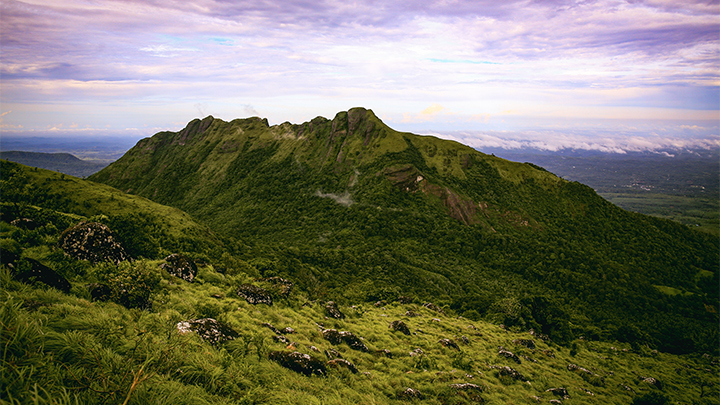World Tourism Day

Kerala has always been one of the most sought-after destinations for domestic and foreign travellers. This year, the state has set a new record, witnessing a surge in tourist visitations, compared to previous years. Kerala has seen a footfall of around 11 million domestic tourists in the first half of 2023 and has seen a 171.55 percent growth in foreign tourists. With an increasing footfall, there is a compelling need to embrace sustainable tourism practices especially when India is on the path to achieve net zero carbon emissions by 2050. Kerala Tourism has remained unwavering in its commitment to safeguarding the ecological and cultural richness of the state.
The theme of this year’s (2023) World Tourism Day is ‘Tourism and Green Initiatives’ and Kerala has been at the forefront of promoting sustainable tourism practices. Kerala, through its Responsible Tourism initiative, has championed eco-friendly tourism products through local artisans. The state is also promoting eco-friendly accommodations, has been utilizing renewable energy for hospitality facilities and is supporting local farmers, products, and conservation efforts.
Message from P A Mohamed Riyas (Minister for Tourism and Public Works, Govt. of Kerala)
Green Tourism the way forward for Kerala
There is a growing consensus the world over that the future of tourism depends entirely on adopting sustainable and inclusive development models. The United Nations World Tourism Organisation (UNWTO) has chosen “Tourism and Green Investments” as the theme of this year’s World Tourism Day, observed on September 27.
This envisages “Investing in People, Planet and Prosperity,” which clearly and succinctly defines what tourism of the future will need to do. It enjoins on governments and stakeholders to make a conscious shift to policies that focus on nature, culture and local communities.
No country can gloss over the grave ill-effects of environmental degradation and climate change. Our very survival depends on how soon, and how effectively, we adopt sustainable, resilient and inclusive policies that will safeguard the planet from further degradation. This is especially important in the tourism sector.
Kerala has already made a paradigm shift towards promoting, supporting and sustaining Green Tourism. In the coming days, more upfront initiatives will be taken to further strengthen this model, with greater emphasis on preserving our ecology, culture and heritage.
This transition will bring about greater sustainability for the environment, provide plenty of opportunities for the people and deliver inclusive prosperity by promoting entrepreneurship and innovation.
Having marked itself firmly on the world tourism map, Kerala has made decisive steps in promoting climate action, building resilient infrastructure and greater community participation in tourism.
The panoramic landscape, clean air, mild and refreshing climate, eclectic culture, tangible and intangible heritage that has survived the onslaught of time and Kerala’s visitor-friendly people are the core assets of Kerala Tourism. We are resolved to protect and preserve them and our policies are formulated with that aim.
Kerala enjoys a huge global reputation as an all-season experiential tourist destination. Of late, we have launched a clutch of new products and initiatives that enhance this reputation to attract more tourists who look forward to a unique experience of living close to nature and intermingling effortlessly with local communities.
Local Self Government Institutions have been taken on board for promoting environment-friendly tourism activities and keeping tourism assets clean, green and smart. Selected tourism centres have already been given Green Certified tags, and more will be added to the list as this is a continuing process.
The initiative of ‘exploring the unexplored’ has turned the entire state into a seamless and well-connected destination. Our villages will benefit substantially from this initiative and make tourism activities centred around, nature, people and culture. It will also create an assured market for local produce like organically grown vegetables, fruits, fish and meat as well as locally made artefacts and souvenirs.
Similarly, the STREET (Sustainable Tangible Responsible Experiential Ethnic) project has gained traction across the state as a participatory tourism model. Kerala’s storied Responsible Tourism mission has been at the forefront of this segment. The Water Street project implemented at Maravanthuruthu in Kottayam district is the first in India. Its emphasis is on restoring the degraded water bodies and using them for tourism.
Kerala has been a pioneer in leveraging tourism for grass-root-level economic and social development and empowerment of women and youth. The State Tourism Department has launched several projects to promote and support entrepreneurship with the generation of jobs and gainful engagement as their focus.
More than state policies, the future of the earth depends on collective action to insulate the planet from further assaults. However effective state policies are, their success relies heavily on the collaboration of state facilitators, industry stakeholders and local communities.






